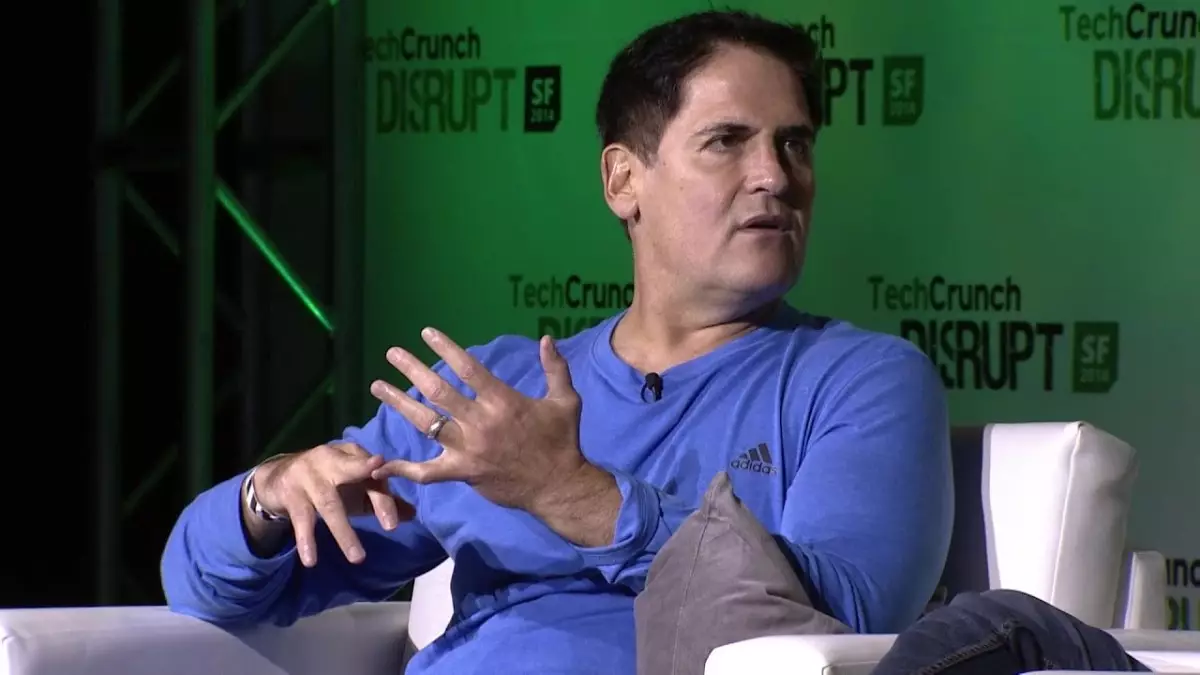The digital landscape is evolving, and entrepreneurs are keenly aware of the need for innovative alternatives to major platforms. Mark Cuban, the billionaire entrepreneur and investor known for his straightforward approach, has expressed an intriguing ambition: to fund a TikTok alternative founded on Bluesky’s AT Protocol. This development comes amidst uncertainty regarding a potential U.S. TikTok ban, leading users to explore other options in the realm of social media. The anticipation surrounding this potential new platform raises questions not just about its design but also about the future of social networking.
Decentralized platforms have gained traction as users increasingly seek greater control over their online experiences. Cuban’s interest in the AT Protocol underscores a broader trend toward creating an open social web that avoids the pitfalls of existing centralized systems. Bluesky’s AT Protocol is a pioneering initiative aimed at transforming how social networks operate. Unlike traditional platforms bound by proprietary models, AT Protocol empowers developers to construct their own networking servers and applications, thereby enhancing user autonomy.
The pioneering development of AT Protocol emerges as a direct response to limitations observed in ActivityPub, a previously established decentralized protocol underpinning services like Mastodon. With ongoing user demand for alternatives, Cuban’s commitment to funding a new project reflects an understanding that many developers are eager to harness this cutting-edge technology to create engaging and open social apps.
The landscape of social media is shifting, and the numbers tell the tale. Bluesky, the primary application leveraging the AT Protocol, has witnessed a remarkable growth trajectory—from 10 million to over 27.6 million users in a matter of months. This explosion of interest can be linked to events like the recent U.S. presidential elections, which spurred many to seek new digital communities. As users transition to alternative platforms, the appetite for decentralized options continues to rise.
Moreover, Cuban’s focus on creating a TikTok rival is timely and strategic. As more users consider platforms that prioritize individuality and freedom of expression, there is a ripe opportunity for a new service that can meet these demands. The mention of Flashes, a client aiming to captivate users through images rather than text, highlights the diversity of offerings expected from the AT Protocol ecosystem.
In a recent TikTok video, Cuban outlined his vision and called on developers to step up to the plate. He encourages innovators to bring their ideas for a TikTok alternative to fruition, emphasizing the importance of a minimum viable product (MVP). His proposition is not just for potential projects but also extends into a partnership where prototypes could receive his backing.
Cuban articulates a further incentive: the AT Protocol assures extensibility, meaning that once built, no single entity can monopolize or shut down the platform. This crucial feature allows users to migrate between servers without losing their valuable connections or content. Such principles underpin the motivation for building a new social network free from the conventional silos created by corporate ownership.
Cuban’s foray into this venture also serves as a guise for promoting competition in a digital ecosystem heavily influenced by prominent players like Elon Musk’s X. Cuban’s previous criticisms of Musk’s approach to content moderation and his handling of misinformation highlight a stark contrast in business philosophies. By advancing a more open alternative, Cuban stands to cement his positioning as a vocal alternative to conventional networks dominated by single entities.
This cross-competitive dynamic exemplifies how personal rivalries can intertwine with broader technological trends, ultimately fostering diverse approaches to social media. Cuban’s proactive stance could invite a new generation of content creators and users to redefine how they interact online.
As the digital realm undergoes significant transitions, Mark Cuban’s initiative to support a TikTok alternative built on the AT Protocol offers a glimmer of hope for a more decentralized social media landscape. Whether this ambition culminates in a viable platform remains to be seen, but the emphasis on user control and innovation certainly aligns with the growing demand for alternatives. With the potential to reshape personal online experiences, this venture could mark a new dawn for social media — one that champions openness, creativity, and individual ownership.

